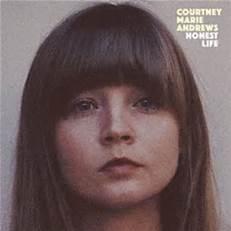Before the release of my list of the best albums of 2017 tomorrow, I’d like to address an issue that’s been bothering me increasingly over the past week, as more and more people release their year-end lists of great country/Americana/bluegrass songs and albums. There seem to be two prevailing themes–the lists, in varying degrees of discrepancy, feature more men than women, and people are getting upset about this, citing it as a consistent, systematic discrimination similar to that faced by women on country radio and all across the industry.
First of all, undoubtedly there is an inherent bias and discrimination against women in the music industry, maybe especially in the country industry, and I’ve spilled much ink discussing this. Women are not given a chance to succeed on the radio despite sales numbers–see Miranda Lambert and “Tin Man,”–while men seem to constantly rocket up the charts no matter how much (Sam Hunt’s “Body Like a Back Road”) or how little “Luke Bryan’s “Light it Up”) it might actually be selling and resonating with the general public. Women are consistently speaking of quotas held by labels and radio programmers, of only being allowed so many slots in the mainstream just because of their gender. All of this is factual, and disheartening, , and something Country Exclusive will do its small part to fight and rail against for the foreseeable future.
But just as the quota for women shouldn’t exist on country radio, it shouldn’t exist on these year-end lists either. As a woman, I strive for equal opportunity with men, and I can’t speak for these artists, but what I can say about Country Exclusive is that we will offer an equal opportunity for both genders to be heard, reviewed, and considered for year-end lists. Although I can’t speak for anyone else with certainty, I believe this rings true for others in my position as well. That said, I will not guarantee equal results here–I will not feature a year-end list that contains exactly half men and half women unless that is a true reflection of my opinion of the quality of the music. I will not add or take away women from a list just to fill a quota or to avoid offending anyone. And if I were an artist, I’d want to be recognized on a list such as this because the writer(s) respected the quality of my work, not because they were playing an arbitrary numbers game. Just as it is wrong to exclude based on gender, it’s wrong to include only on that basis, for this in turn diminishes the quality of one’s output and asserts that specific groups, in this case women, need special treatment and mandated quotas in order to make these lists. This is not equality. This is not progress. This is affirmative action, and affirmative action is not, or should not be, the goal. A tweet I read sums this up perfectly by saying that if you pay attention to gender when listening to music, you’re doing it wrong.
Country Exclusive did not operate regularly in 2016, but two albums received a 10/10 rating that year and could be considered tied for Album of the Year. Those were Dori Freeman’s self-titled debut and Courtney Marie Andrews’ Honest Life. In 2015, our Album of the Year was given to the self-titled record by the Turnpike Troubadours, and in 2017, it will go to a man. Of the eight albums that have received perfect grades from me over the past two and a half years, five were by women–I heard it said that if these lists weren’t biased, surely on one of them, there would be more women than men, so although this is not a year-end list, there is a small example of women outnumbering men here on this platform. That said, in 2017, twenty-eight of the seventy-eight albums we’ve reviewed here have been either by solo women performers or by groups fronted by women–those are numbers reflecting the material which has been available to us, this is not half, nor will the albums list reflect that. I can’t speak for everyone on this, of course, but much of this is a numbers game–not a game of filling quotas, but simply of the numbers being unbalanced when it comes to albums released in 2017.
Lastly, above all, this should be about the quality of one’s work. If the twenty best albums of the year were made by men, a writer should reflect that, and readers should respect that. If they were made by women, once again, a writer should reflect that, and readers should respect it. Writers should take all artists’ music into equal consideration, but if this is happening, they shouldn’t be singled out for including more men than women, certainly not in a year where more albums have been released by men. Equal opportunity does not necessarily mean equal results, nor should we wish it to because this is a fundamental disrespect of the quality of music made by both men and women. Imagine being left off the list as a man because the list required more women that perhaps made lesser projects. Imagine being included on the list simply because you were a woman, rather than because that person actually believed in you and your craft and sought to highlight your music among all your peers, not just those from your gender. Neither scenario correctly reflects the true quality of the music at hand, and ultimately, that’s the problem with the systematic discrimination in the industry. It’s all about quotas, not quality. So set an example by not allowing it to be that way in independent music and on these lists, so that artists are truly recognized for putting out the best music, and so that gender is a completely irrelevant factor. It’s not about having “enough” women on these lists, it’s about making sure that the best music, regardless of anything else, is heard and rewarded.
